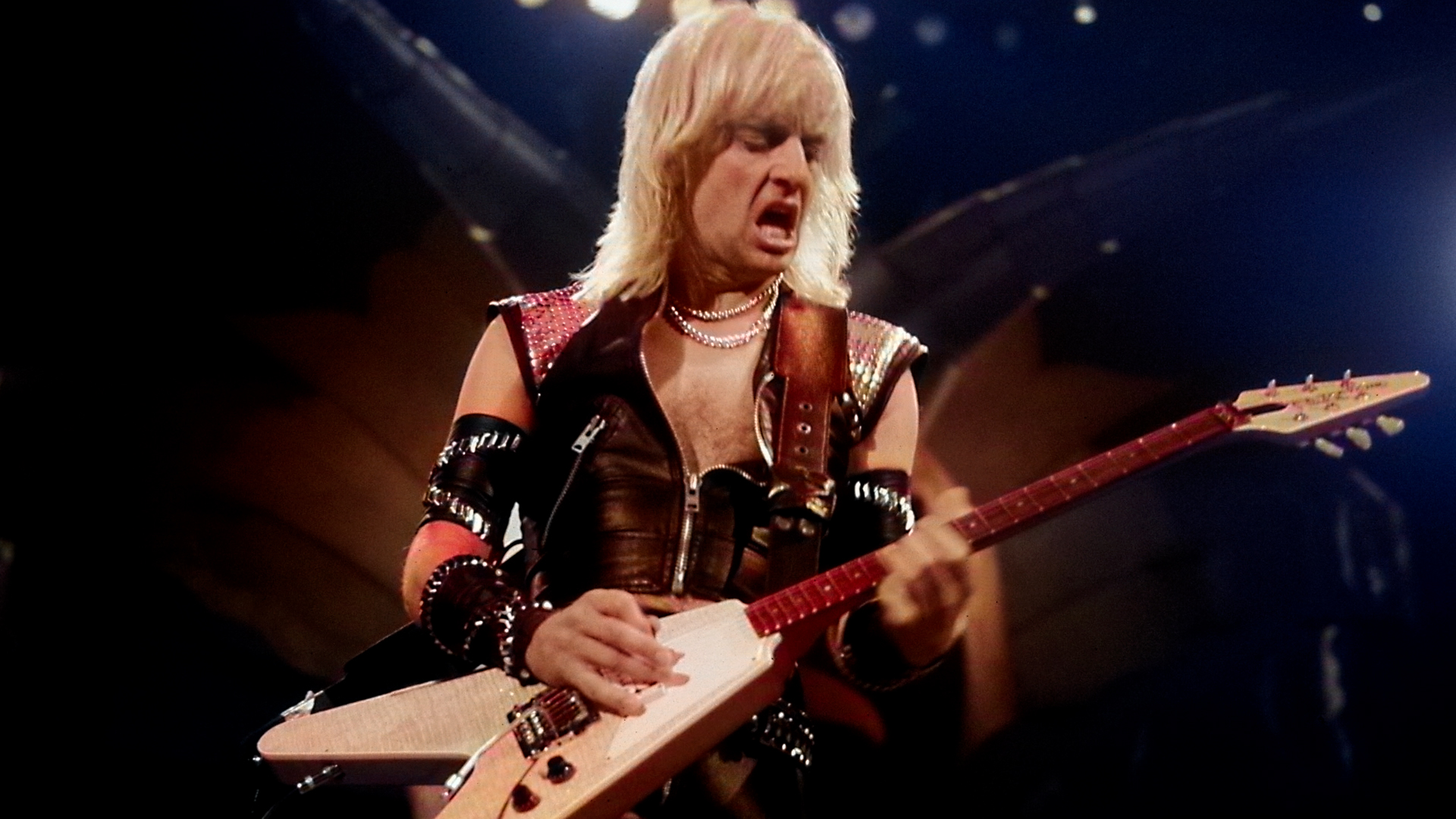"It's a very weird situation, and I don't think I'll ever understand it." Guitarist K.K. Downing updates his status with Judas Priest as he tells the story behind the song that defined the group's heavy-metal image
The guitarist —who celebrates his birthday today — says he wrote "Run of the Mill" to show off Rob Halford's remarkable vocal range

“Sometimes subconsciously, you pick up the guitar and just noodle around and play something in a certain mood," former Judas Priest guitarist K.K. Downing says when asked about his 1974 song "Run of the Mill." "And that piece of music was what came out one day when I just picked up my guitar.”
Slow burning, atmospheric and epic, “Run of the Mill” secured the young group a record deal with Gull Records, and later appeared on the group’s 1974 debut album Rocka Rolla.
Judas Priest went on to become one of the pioneers of heavy metal, but at the time Downing wrote “Run of the Mill,” they were still finding their feet as a four-piece. A mix of prog-rock and blues-rock, underscored by lengthy guitar solos, “Run of the Mill” showcased a group that was still formulating its signature sound.
“I was a massive fan of Clapton and Hendrix,” Downing says. “Bands like Cream, and all of these progressive blues’ bands did these long-improvised solos, and so, it was kind of a thing to drift off and just try to take the risk of entering that creative world of doing long solos.
"Every time we did a gig, we were bill as a progressive blues band, which we weren't, and which was extremely annoying. I couldn't really describe our music because heavy metal, heavy rock and hard rock, none of those were terms at that point. The only thing I knew was what I liked. And I knew our music did have more depth and meaning – a kind of white working-class kids’ blues, something that was there for people who like me, had a pretty rough start in life.”
While “Run of the Mill” builds in intensity, shifting gears through its use of dynamics, as the guitars segue into heavier sonic terrain, the song reaches its climactic end with a burst of high-pitched wailing from vocalist Rob Halford. As Downing explains, that was entirely the point .
“That whole song is all about the ending, getting to that crescendo, with Rob's incredibly high vocals,” he says. “Making it heavy at the end was a kind of technique that was built into me due to growing up as a kid listening to lots of other band such as the Kinks. The riff on 'You Really Got Me' was the first time I heard something that moved me.”
All the latest guitar news, interviews, lessons, reviews, deals and more, direct to your inbox!
When it came time to enter the studio, Judas Priest were ordered by their label to add an additional guitarist. Their choice was Glenn Tipton, formerly of the British hard rock group the Flying Hat Band. Tipton and Downing's twin-guitar alliance would prove pivotal to Judas Priest solidifying their sound.
Downing recalls using his 1961 Les Paul SG Standard on the track. “We also used stock 50-watt Marshall heads,” he says. “Glenn and I stayed with those 50-watts for many years. He used a 1960s Fender Strat. I remember in the studio, he told us this story that prior to having the Strat, he had another Strat which was later sadly stolen, and it took him a long time to recover from it.”
Downing affirms that the guitar sound heard on “Run of the Mill” is completely free of effects. “Even to this day, I've always kept a straight guitar sound,” he says. “I mean, you hear so many players using medium to heavy chorus, whether it's Randy Rhoads or Zakk Wylde, and so many bands do that, but I always have been kind of a pure-sound guy.”
Having set the stage for Downing and company to arrive at their respective metal God status, Judas Priest became the bridge for heavy metal to branch off into a multitude of subgenres. “I'm extremely proud to have been a part of it all and to have been on the evolution and the journey of heavy metal,” he says. “And I'm quite proud that I had the foresight to think that there was something out there beyond the style of music we were playing in those early days. We've had so many different forms of metal from that: black metal, industrial metal, metal speed, Scandinavian metal… Looking to the future, has the sponge finally been rinsed dry as to where metal can go next? Maybe not.”
As for Downing's future with Judas Priest, nothing seems to have changed between him and the band since his 2011 departure.
"It's a very funny and weird situation,” he states. “And I don't think I'll ever understand it really. I did our Rock and Roll Hall of Fame induction with them in 2022, and the guys came up to me in an embracing way. Not everyone, but most of them. And I'm thinking, this is all a bit weird, but it is what it is. I think the only thing we can do now is just continuing to do what we do and make good music. And as to whether the door for me is open, who knows?”
Joe Matera is an Italian-Australian guitarist and music journalist who has spent the past two decades interviewing a who's who of the rock and metal world and written for Guitar World, Total Guitar, Rolling Stone, Goldmine, Sound On Sound, Classic Rock, Metal Hammer and many others. He is also a recording and performing musician and solo artist who has toured Europe on a regular basis and released several well-received albums including instrumental guitar rock outings through various European labels. Roxy Music's Phil Manzanera has called him "a great guitarist who knows what an electric guitar should sound like and plays a fluid pleasing style of rock." He's the author of two books, Backstage Pass; The Grit and the Glamour and Louder Than Words: Beyond the Backstage Pass.


